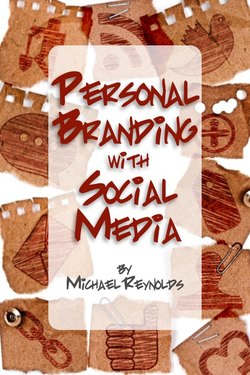Читать книгу Personal Branding with Social Media - Michael Ph.D. Reynolds - Страница 4
На сайте Литреса книга снята с продажи.
1. An Overview of Personal Branding
ОглавлениеWhat makes up a brand? Typically, we think of branding as it relates to a business. A business has a logo, standard colors, philosophies, policies, communication styles, and other elements that influence the company's brand. Ultimately, however, the brand is how others perceive that company. Some companies have a strong and positive brand, while others suffer from tarnished brands as a result of certain factors.
The same rules apply to people. Everyone has a brand. Your personal brand is how others perceive you. It is constantly being influenced by numerous factors, such as how you communicate, what type of work you produce, and who you associate with.
Prior to the age of social media, your personal brand was influenced by just a few things. How you dressed, how you spoke, and what your resume looked like might be all it took to make up a personal brand for a job seeker. Sales professionals relied on sharp suits, expensive lunches, and influential friends in order to strengthen their personal brands. The flow of information was limited and it was difficult to find much background material on someone.
Today, we are living in an age of unprecedented transparency. LinkedIn, Facebook, Blogs, and Twitter allow us to distribute, communicate, self-publish, and produce on a level never seen before. A quick Google search of someone's name and location can turn up a long list of profiles on various social networking sites, giving the researcher all sorts of information about that person.
Numerous stories can be found of people who have gotten fired from jobs, lost sales, and damaged their careers over activity on Facebook. This being the case, some might suggest that it's safer to simply avoid social media altogether to keep your personal brand untarnished. While tempting, I would argue that this would lead to missing a huge opportunity to build your personal brand on your own terms. Ultimately, conversation, research, and exchange of information is happening in social media whether you are participating or not. Doesn't it make sense to use it to your advantage?
Employers make frequent use of LinkedIn for researching job candidates. If you have no LinkedIn profile and the other candidate has a richly-populated profile full of recommendations, presentations, and content, who looks better? If you're going for the big sale and the prospect researches you and your competition online, what do you want him to find? If you have no presence and your competitor has written blog articles on the problem being solved, who looks like the expert?
People want to do business with people they like and trust. All the business branding in the world will not close a sale if the prospect does not like and trust the person with whom he is doing business. A long, shiny resume will not get someone a job if his or her potential employer cannot find evidence of prior performance and recommendations from others.
Social media allows us to deliver these trust factors. These tools allow us to shape a personal brand like never before.
